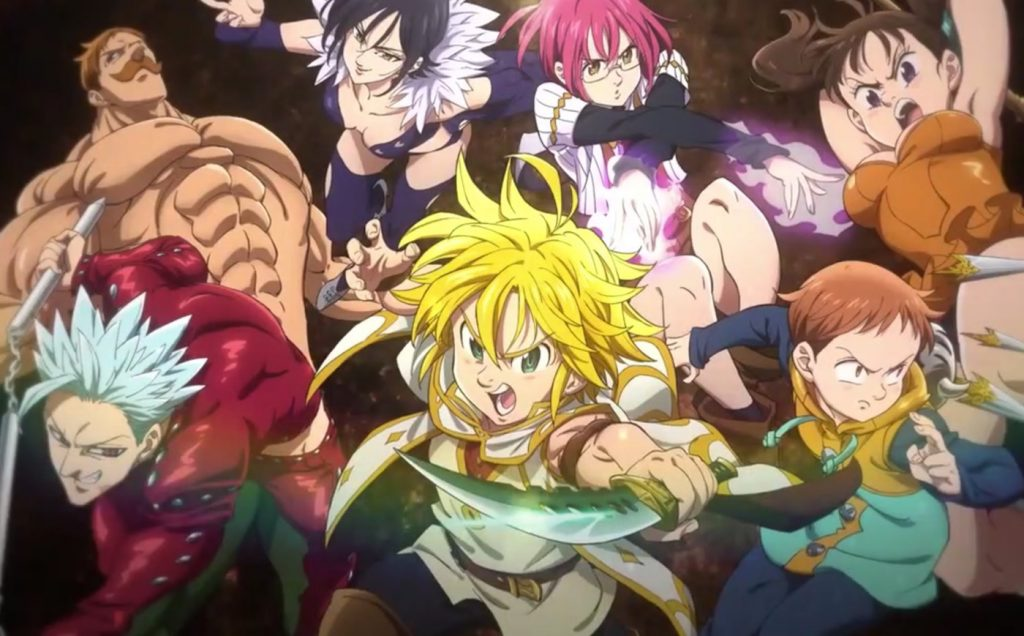In the vast landscape of anime, where imagination knows no bounds, there exists a series that delves deep into the essence of human flaws and virtues: "Seven Deadly Sins." Inspired by the classical concept of the seven deadly sins—pride, greed, wrath, envy, lust, gluttony, and sloth—this anime weaves a captivating tale where each character embodies these sins in both literal and metaphorical ways. Let's embark on a journey through the world of "Seven Deadly Sins" and explore how each sin is portrayed through its characters.
1. Meliodas - The Dragon's Sin of Wrath
At the heart of the story stands Meliodas, the leader of the Seven Deadly Sins and the embodiment of wrath. Despite his youthful appearance and carefree demeanor, Meliodas conceals immense power and a dark past that connects directly to his sin. His wrath manifests not only in battles where he unleashes his demonic strength but also in his relentless pursuit of justice and protection of his loved ones.
2. Diane - The Serpent's Sin of Envy
Diane, the giantess and a member of the Seven Deadly Sins, embodies the sin of envy. Standing tall and formidable, Diane's envy stems from her longing for acceptance and belonging in a world where giants are often feared and misunderstood. Her journey reflects the struggle to reconcile her desire for connection with the reality of her imposing presence.
3. Ban - The Fox's Sin of Greed
Ban, the immortal thief and adventurer, personifies the sin of greed. Driven by his insatiable desire for wealth and immortality, Ban's character evolves through his relationships with others and his quest for redemption. His actions often blur the lines between selfishness and selflessness as he grapples with the consequences of his eternal life.
4. King - The Grizzly's Sin of Sloth
King, the Fairy King and protector of the Fairy Forest, carries the burden of sloth. Despite his gentle demeanor and reluctance to engage in conflict, King harbors a deep-seated guilt for past failures and hesitates to embrace his responsibilities fully. His journey is one of personal growth and acceptance of his role as a guardian.
5. Gowther - The Goat's Sin of Lust
Gowther, the enigmatic member of the Seven Deadly Sins, embodies the sin of lust. However, in the context of the anime, Gowther's lust is not for physical desires but for understanding and empathy. As a doll created to understand emotions, Gowther navigates the complexities of human feelings and relationships, often with unintended consequences.
6. Merlin - The Boar's Sin of Gluttony
Merlin, the immensely powerful sorceress, represents the sin of gluttony. Her insatiable hunger for knowledge and magical power drives her relentless pursuit of arcane secrets and ancient artifacts. Despite her formidable abilities, Merlin's thirst for power raises questions about the morality of her actions and the consequences of her choices.
7. Escanor - The Lion's Sin of Pride
Escanor, the mighty Lion's Sin of Pride, embodies his sin in a literal and figurative sense. Blessed with a power that grows with the sun, Escanor exudes overwhelming pride in his abilities, contrasting his gentle nature as a humble bartender during the night. His internal struggle between humility and arrogance forms a central theme in his character arc.
Through these diverse characters, "Seven Deadly Sins" not only entertains with its action-packed battles and intricate plot but also challenges viewers to reflect on the complexities of human nature. Each sin serves as a lens through which we explore the motivations, fears, and desires of these memorable characters, reminding us that even in a world of magic and fantasy, the greatest battles are often fought within ourselves.
As you journey through "Seven Deadly Sins," ponder how these characters' sins shape their destinies and resonate with the human experience. For in the clash of virtues and vices lies a narrative that speaks to the eternal struggle for redemption, understanding, and ultimately, the triumph of the human spirit.






0 Comments